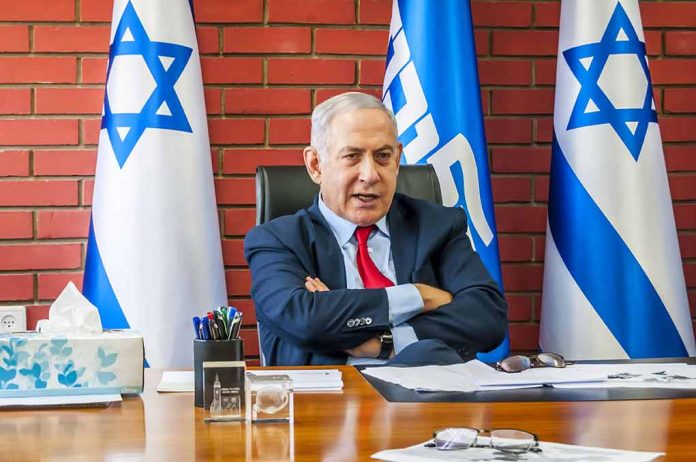
International arrest warrants for Israel’s leadership pose legal and diplomatic quandaries.
At a Glance
- The ICC has issued arrest warrants for Netanyahu, Gallant, and Hamas leader Deif for alleged war crimes.
- Israel does not recognize the ICC authority but warrants bind 124 countries under the Rome Statute.
- The warrants could affect international travel and diplomacy for Netanyahu and Gallant.
- Legal proceedings are contingent upon arrests or voluntary appearance by the accused.
ICC’s Role in Promoting Accountability
The International Criminal Court (ICC), located in The Hague, Netherlands, and operational since July 2002, seeks to end impunity for serious international crimes. Its remit includes prosecuting crimes against humanity, genocide, and war crimes. With 18 judges elected from different countries for nonrenewable terms of nine years, the ICC has so far issued 59 arrest warrants and secured 11 convictions.
Israel’s Prime Minister Benjamin Netanyahu and former Defence Minister Yoav Gallant now face arrest warrants from the ICC, thrown into the complex web of international jurisprudence. Allegations against them involve war crimes and crimes against humanity in Gaza, along with Hamas leader Muhammad Deif. Nonetheless, since the ICC lacks its own enforcement mechanism, execution of these warrants lies with the countries that recognize the court’s jurisdiction.
Israeli PM Netanyahu and his ex-Defence Minister Gallant are now fugitives from justice after the ICC issued arrest warrants against them over suspected war crimes in Gaza.
Here is the list of countries where they could be detained ➡️ https://t.co/KVEuaLeUVu pic.twitter.com/3to4xmagwV
— Al Jazeera English (@AJEnglish) November 22, 2024
Diplomatic Implications and Challenges
The legal implications of the arrest warrants extend into the diplomatic sphere, affecting Israel’s international relations. While neither Israel nor the United States are signatories of the Rome Statute that established the ICC, the 124 state parties are obligated to enforce these warrants. This legal landscape restricts international travel and engagement opportunities for accused leaders, particularly in Europe, where EU member states are bound by the Statute.
Resistance to comply with these legal obligations amounts to a violation of international legal norms. The potential detention of Netanyahu and Gallant in member states from the United Kingdom to Australia underscores a new dimension of their foreign relations strategies. Their ability to maneuver diplomatically remains constrained by the specter of potential arrest.
The International Criminal Court (ICC) @IntlCrimCourt issues arrest warrants for Israeli PM Benjamin Netanyahu and former defence minister Yoav Gallant, together with a former Hamas commander, citing allegations of war crimes and crimes against humanityhttps://t.co/AF4IrS2TLf
— UN News (@UN_News_Centre) November 21, 2024
Israel’s Stance and Future Prospects
Both Netanyahu and Gallant have dismissed the ICC’s authority. Israel’s non-participation in the Rome Statute further complicates the prospect of any voluntary appearance at the ICC. Despite significant accusations, without arrests or voluntary appearances by Netanyahu, Gallant, or Deif, the legal proceedings remain stalled.
“The ICC issuance of arrest warrants against Israeli leaders is outrageous. Let me be clear once again: whatever the ICC might imply, there is no equivalence — none — between Israel and Hamas. We will always stand with Israel against threats to its security,” said President Joe Biden.
As the ICC progresses with its mandate, the geopolitical and legal landscape surrounding these warrants will continue to evolve. Israel, navigating these complex legal challenges, will need to assess the limits of its diplomatic and international engagements in the interim period, while its leadership remains under global legal scrutiny.








